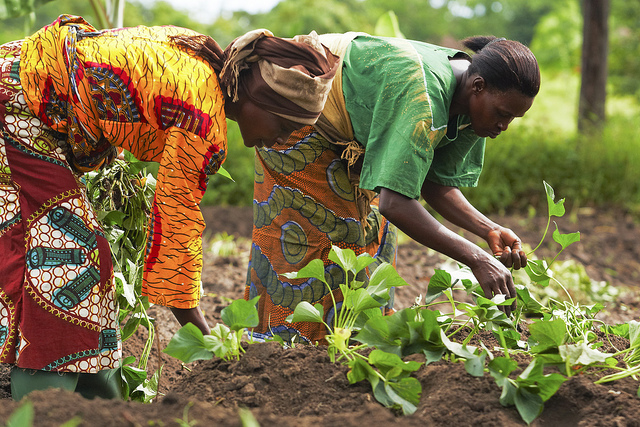Send to a friend
The details you provide on this page will not be used to send unsolicited email, and will not be sold to a 3rd party. See privacy policy.
[PARIS] An international platform to strengthen and coordinate research on organic farming, and help benefits trickle down to organic farmers, the majority of whom are in developing countries, was launched in Germany last week (15 February).
The idea for the network emerged on the sidelines of the UN negotiations at the Rio+20 summit last June. It is coordinated by the International Federation of Organic Agricultural Movements (IFOAM).
The network, dubbed the Technology and Innovation Platform of IFOAM (TIPI) will act as a forum for stakeholders, including farmers, scientists and civil society organisations, to debate the direction of organic research and to influence agricultural policy. It will also work to improve the evaluation and implementation of organic farming, and undertake lobbying.
SPEED READ
- Network will organise workshops for farmers and scientists, and coordinate research
- It hopes to benefit organic farmers in developing countries
- A separate, UN body, will help farmers certify their produce
While it will not fund research directly, by coordinating its member institutions, it could help to identify and fulfil research priorities, says Markus Arbenz, executive director of IFOAM.
"There is a lot of research being done, but it's poorly coordinated," he says.
"TIPI will create a global umbrella to push the scientific case for organic farming and make sure the messages our community sends out have a strong scientific basis."
Currently consisting of 35 research institutions, TIPI will help to build a global research agenda to address challenges such as food security, ecosystem degradation and social discrimination, through a number of initiatives.
These include workshops for farmers and scientists to exchange ideas, the creation of inventories of all research programs and literature resources, and a conference for TIPI members, scheduled for 2014.
With around 80 per cent of the 1.8 million organic-certified farmers living in developing countries, the benefits of fostering organic research, both through scientific research and governmental policy, would greatly benefit these regions, Arbenz tells SciDev.Net.
Urs Niggli, director of the Research Institute of Organic Agriculture (FiBL), in Switzerland, and a board member of TIPI, agrees that organic farming is important for development.
Case studies of two million farmers in Sub-Saharan Africa show that converting to organic farming considerably improves livelihoods, as well as education and training opportunities for farm children, he says.
But despite this social benefit, a lack of funding for organic farming and the dominance of the private sector in agricultural research prevents the full benefits being felt, Niggli says.
He estimates that less than 0.4 per cent of some US$52 billion annually spent on agricultural research goes towards organic-specific initiatives.
Using TIPI to create cohesion within the organic farming community, to set research agendas and to lobby policymakers, is a good way to improve financial and political support for organic methods, he tells SciDev.Net.
But while improving research and lobbying will help, farmers in developing countries are also failing to benefit due to complicated certification schemes, says Arbenz.
He adds that a new body, the UN Forum on Sustainability Standards (UNFSS), scheduled for launch in March, whose remit will include streamlining organic certification schemes, may help.
UNFSS will aim to make it easier for poor farmers to accredit their produce as organic, and thus make greater profits.
Hans Herren, president of the Millennium Institute, in Washington DC, United States, says TIPI's success will depend on engaging the right partners and on consumer demand.
TIPI must look beyond traditional organic farming research organisations, and shift attention towards educational institutions such as universities, agricultural schools and farmer training centres, he says.
Herren adds that consumers are the critical factor to the movement's success: without a demand for organic products it will be difficult to switch to organic on a larger scale.
Current estimates put organic sales at over US$60 billion a year, mainly in Europe and the United States. The countries with the highest number of organic farmers are India, Mexico, Tanzania and Uganda, with around one million producers among them. Most organic land is in Europe, Latin America and Oceania.














